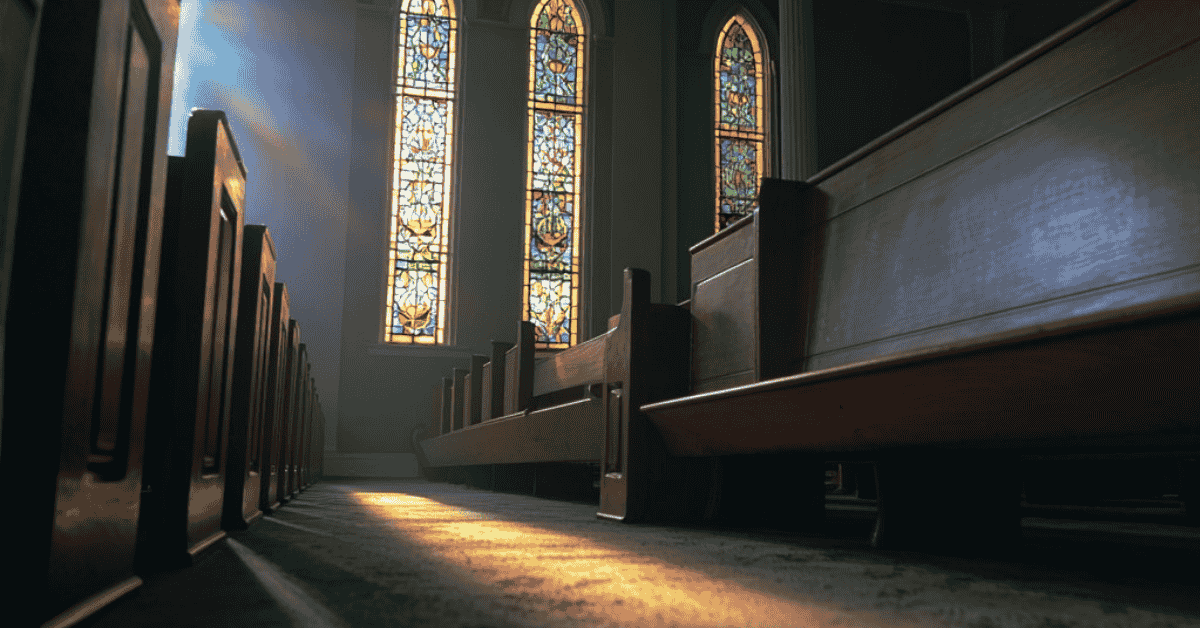When the Pastor Said “Don’t Tell Anyone” — That Wasn’t God Talking
When Silence Was Sold as Faith
When a pastor says, “Don’t tell anyone,” it can sound like obedience. It can sound like loyalty. But for many survivors in Southern Baptist churches, those words were the moment faith was stolen and fear took its place.
That wasn’t God talking. That was control disguised as holiness.
For decades, some leaders in the Southern Baptist Convention have used scripture, authority, and shame to keep survivors quiet. They quoted verses about forgiveness and gossip to hide criminal behavior. They called silence “grace.” They made victims feel responsible for the church’s reputation.
But covering up abuse doesn’t protect faith—it protects predators.
What Spiritual Abuse Looks Like in Southern Baptist Churches
Spiritual abuse happens when someone uses faith, scripture, or divine authority to control or harm another person. Inside the Southern Baptist church structure, this can look like:
- A pastor telling a survivor to “pray harder” instead of reporting abuse
- A church leader warning that speaking up would “hurt the ministry”
- Leaders insisting that “forgiveness” means avoiding legal action
- Congregants turning against a survivor for “bringing shame” on the church
When these tactics are used to keep victims silent, it becomes more than emotional manipulation—it becomes spiritual abuse. And in many Arkansas churches, that silence has allowed predators to stay in power.
You can read more about how survivors have taken action in Southern Baptist church abuse cases in Arkansas and why accountability inside faith institutions is long overdue.
“Don’t Tell Anyone” — The Manipulation Behind the Words
Is it spiritual abuse if a pastor tells me to stay quiet?
Yes. When a pastor discourages you from speaking about harm, they are using their spiritual authority to isolate and control you. That’s not protection—it’s manipulation.
These words often come wrapped in guilt and scripture. Survivors are told that reporting abuse would “hurt the church family.” They’re reminded that “we’re all sinners.” They might even be warned that speaking out would cause others to “lose their faith.”
But the truth is simple: God does not require silence to forgive.
Abusers do.
The command to “keep this between us” is not sacred. It’s self-serving. It keeps the pastor’s image intact while the survivor’s pain festers in secret.
Silence doesn’t heal anything—it only shifts the burden onto the victim.
When Faith Is Twisted Into Fear
Many survivors of Southern Baptist spiritual abuse say they doubted themselves for years. They wondered if they misunderstood God. They replayed every verse quoted at them, searching for the line that justified their silence.
But there isn’t one.
The Bible is filled with calls for truth and justice. It praises those who defend the vulnerable and condemns those who hide sin in the shadows. When religious authority becomes a weapon, it’s no longer faith—it’s idolatry of power.
So if you’ve ever asked yourself, Was I spiritually manipulated by my church?—that question alone shows your spirit is waking up. You’re not betraying your faith by naming abuse. You’re reclaiming it.
What the Bible Actually Says About Reporting Abuse
What does the Bible say about reporting abuse?
It says, “Speak up for those who cannot speak for themselves.”
It says, “Expose the deeds of darkness.”
It says, “The truth will set you free.”
Nowhere does it say to protect predators or hide their crimes to avoid scandal. When someone uses faith to shield wrongdoing, they are misrepresenting God’s word.
Many Southern Baptist survivors in Arkansas have shared how these mixed messages from church leaders made them question whether justice was even allowed. But seeking accountability isn’t an act of rebellion—it’s an act of truth-telling.
Justice and mercy aren’t opposites. They’re partners.
Legal and Emotional Options for Survivors in Arkansas
Breaking that silence can feel terrifying, especially when the church was your entire community. But survivors in Arkansas have both legal rights and confidential options to move forward.
Civil lawsuits can hold individual leaders and institutions accountable for covering up or enabling abuse. These cases can uncover hidden records, expose long-term patterns, and push churches to change their internal practices for good.
If your church claims it’s “independent” and not part of the larger Southern Baptist Convention, that doesn’t mean it’s shielded from liability. Each church’s structure and oversight can be investigated in a case-by-case legal review. You can learn more about how this works in sue a Southern Baptist church that claims independence — a guide that explains these legal nuances clearly.
Beyond legal action, there are survivor-centered organizations and trauma-informed therapists who specialize in faith-based abuse recovery. Many survivors also find strength in connecting with others who’ve walked this same road—people who understand both the pain of betrayal and the power of speaking truth.
Healing doesn’t erase what happened, but it shifts the shame back to where it belongs.
What to Expect When You Speak Up
Every survivor’s journey looks different. Some start by confiding in a trusted friend or counselor. Others begin with a private call to an attorney who handles faith-based abuse cases.
You don’t have to file a lawsuit immediately—or at all. But knowing your rights can be grounding when everything else feels uncertain.
Here’s what typically happens when you share your story with a law firm that handles sexual and spiritual abuse cases:
- Confidential consultation. You can talk about what happened without pressure or obligation.
- Case review. The attorney helps determine if your situation qualifies as spiritual or institutional abuse.
- Investigation. This can include church documents, witness statements, or prior reports.
- Filing a claim. You decide whether to move forward after learning all your options.
You can read a full breakdown of this process in filing a claim against a Southern Baptist church in Arkansas — a resource designed to walk survivors through each step with care and clarity.
When survivors come forward, it doesn’t just protect themselves. It protects every child sitting in a pew today who deserves to grow up safe.
Reclaiming Faith and Voice
Silence was never holy. It was heavy, suffocating, and undeserved.
But breaking it—no matter how long it’s been—is sacred.
When a pastor told you to “keep it between us,” that wasn’t God speaking. That was fear trying to hold power.
God’s voice sounds different. It calls for truth, light, and justice. It tells you that your story matters. That your pain was real. And that the act of speaking—after years of being told to stay quiet—is one of the most faithful things you can do.
You were never meant to protect your abuser. You were meant to be free.
If you’re ready to talk about what happened or learn what legal options are available to you, confidential help is available through experienced attorneys who understand both faith culture and trauma. You don’t have to walk this road alone.
Closing Message
When the pastor said, “Don’t tell anyone,” that wasn’t divine instruction. That was deceit.
And the moment you choose truth, the silence loses its power.
Your story can still be part of God’s redemption—but this time, it begins with your voice.



